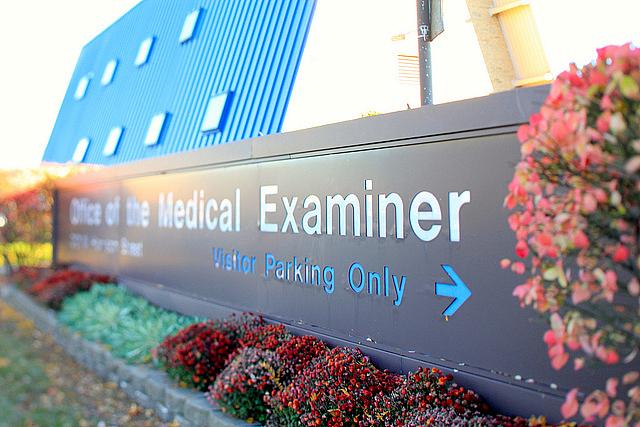Well Sourced: Keep the door to the medical examiner’s office open

Often the first job someone lands at a newspaper is the police beat. It works best if you have no obligations outside of work and can drop everything at a moment’s notice to run out to the scene of a crime. If you are doing your job right on the police beat, you likely will have encountered the county coroner or medical examiner. You will have befriended the staff in the county morgue, and been given access to investigative files and photos. You may have even seen a few bodies.
That same relationship with the coroner or medical examiner and that understanding of autopsies and forensic investigations will serve you well on the health beat, too. So don’t let the police reporter tape off that territory.
SOURCE: The county coroner or medical examiner
WHAT IT DOES: Performs autopsies and forensic examinations of biological evidence. These can be for a death in a hospital or nursing home, part of a criminal inquiry, or both.
WHAT IT DOES NOT DO: Coroners and medical examiners usually are fairly wired into the police system and the local health system. And, in the case of coroners, they often are elected officials. This makes them less likely to put the blame for a death on a particular doctor, police officer, etc. They also aren’t conducting independent investigations based on a tip. They usually are notified directly about a death in a nursing home, for example, and are essentially summoned to perform an autopsy. If nobody in the nursing home calls them about the death, they won’t perform the autopsy. Lastly, there simply are not that many autopsies performed any more. Marshall Allen wrote a wonderful series about this in 2011, with the lead article headlined “Without Autopsies, Hospitals Bury Their Mistakes.” He wrote:
Autopsy rates at teaching hospitals, which are typically run on a nonprofit basis and have an educational mission, hover around 20 percent today. At private and community hospitals, which constitute 80 percent of facilities nationwide, rates can be close to zero.
RECORDS: Your main reason for asking for a coroner’s report or a medical examiner’s report will be because of a death in a medical setting. The reports are typically only a few pages long and include descriptive text, diagrams, and often photos. There is a final report and there also are notes that go along with it. Ask for both. In most states, both are part of the public record. The report and notes are not a substitute for working with families of the deceased or attorneys involved to get access to the relevant medical records from the hospital. You should do that, too. But the coroner’s report can provide a counterpoint to the narrative in the hospital records, helping you uncover hospital or physician errors, and they can provide hard evidence for something that a source may be telling you off the record. The reports often don’t include the results from any toxicology examination. Was the patient given an overdose of drugs? Were they themselves taking a certain type of drug before their death? You don’t have to work for TMZ to be interested in the toxicology results.
RECOMMENDATION: After you spend some time with a coroner’s report, you can forget that the body being cut open and examined was a real person. The person may have had a long career with many successes and failures, a life cut short by a preventable mistake. The person may have had a spouse and kids and a sprawling family across countries and cultures, all of whom are now grieving in their own way. The person may have been an infant whose life was only fully realized in the dreams of a parent but whose loss is just as devastating.
Part of your obligation as a reporter is to bring that person back to life in your story, to treat the facts of their death with respect, both for the dead and for the living left behind. It’s true that you cannot libel the dead, but consider it a privilege to be able to document someone’s final moments and treat them with care. Dr. R. Jan Gurley wrote an excellent piece that should be tucked into every coroner’s report: “Holding a Death in Your Hands: What Autopsy Reports Tell Us About How Someone Lived.” She wrote about her experiences reviewing reports on homeless patients who died in her clinic:
Those of us who work in our clinic are aware that for many of our patients, we are the only "family" they have, the only people contacted when they die. Having that role, and reading these autopsy reports, can be deeply disturbing. You can imagine. Perhaps you sat, and held that person's hand – the hand with the kitten tattoo. You tried to help this person create a better, healthier life. Maybe you even thought she made it, that having a place to lay her head was the beginning of a new life.
Keep Gurley’s words in mind when you visit the coroner or medical examiner in your county.
Photo by Daniel X. O'Neil via Flickr.

